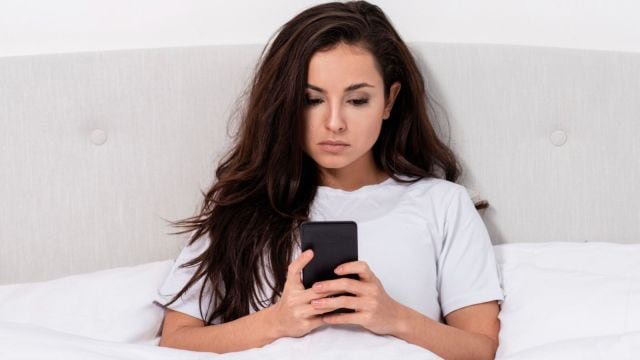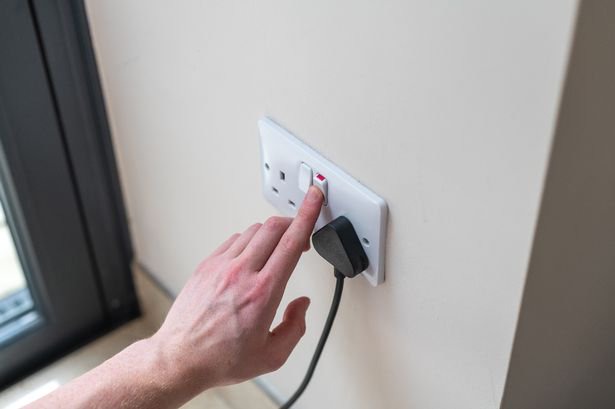
Do you reach out for your smartphone right after opening your eyes in the morning? Here’s why this habit could impact your productivity and quality of life.
According to experts, using your smartphone right before bedtime and reaching for it as soon as you wake up are having a serious impact on your health. (Image: FreePik)
It’s 2024 and smartphones have become ubiquitous, so much so that almost every aspect of our life revolves around these tiny blocks of blue light. While technology aims to make our lives comfortable, there are some apparent dangers–some that are silently taking away the joys of our lives. A report by Boston Consulting Group earlier this year found that around 84 per cent Indian smartphone users check their phones within 15 minutes of waking up. As glaring as that number is, the damage it can do to one’s daily lives is far more alarming.
According to experts, when you wake up in the morning, your brain moves from delta state (restful) to theta state, a kind of dreamy state, and later to alpha state, a stage when you are awake but not fully processing information. Later, the brain moves to the beta state, which is when you are fully alert.
And, when you use your phone immediately after you wake up, and jump to the beta state from the delta state, this puts stress on the brain. Researchers say this rapid transition could lead to an increase in anxiety, irritation, and make one feel less productive throughout the day. To combat this situation, experts are of the opinion that one should use their smartphones only 30 minutes to one hour after waking up.
What is happening with our sleep cycle?
The use of smartphones right before bed and immediately after waking up has become increasingly common in the last few years. And these habits have been formed owing to a variety of factors such as the surge of social media apps and short-form video apps that bring a plethora of content. Whether it’s scrolling through X, checking other social media platforms, or endlessly watching Shorts and Reels, these activities have become common habits for many of us. While all these may seem enticing and rewarded with instant dopamine, have you wondered how it impacts our precious sleep?
There are numerous studies that show how the blue light emitted by your smartphones affects your sleep and impacts overall well-being. To understand the gravity of the situation, we will explore one of the most cited studies in this domain. MDPI, a publisher of open-access scientific journals, published the paper Preliminary Results: The Impact of Smartphone Use and Short-Wavelength Light during the Evening on the Circadian Rhythm, Sleep and Alertness. The research throws light on how the blue light emitted by smartphones affect the quality of our sleep and overall alertness and if this can be fixed. Here’s what we can learn from experts about how our sleep and health is being impacted by the perceived harmless use of smartphones.
What is blue light?
It is essentially a short-wavelength light that is emitted from smartphones, laptops, and other devices that come with light-emitting diodes, or LEDs. This blue light reportedly has a wavelength of around 460 nanometres and can significantly impact the human body’s natural sleep and wake cycles, which is also known as the circadian rhythm.
For the uninitiated, the circadian rhythm can be called the body’s internal clock that regulates our sleep and wake cycles and other physiological processes over a 24-hour period. This is influenced by natural light and darkness that help one determine when to sleep and stay awake. It also affects the body temperature, production of hormones such as melatonin and cortisol, and overall alertness, essentially aligning our biological processes with the natural day and night cycle. As per the above study, any disruption to this cycle, like exposing oneself to blue light, can not only mess up the sleep cycle but also impact one’s overall health.
Blue light is the short-wavelength coming from light-emitting diodes or LEDs. (Image: FreePik)
Researchers seem to suggest that being exposed to blue light in the evening may trick the brain to perceive that it is still daytime. This disrupts your ability to feel sleepy, affecting melatonin production. Melatonin is the hormone that helps you sleep.
Authors of the research published by MDPI observed how smartphone use before bedtime impacts sleep. They wanted to specifically see how reading on a smartphone (with or without blue light filter) compared to reading physical books affected quality of sleep, hormone levels, and alertness the next morning. They made 14 young male participants spend three nights in a sleep laboratory and on each night participants spent 90 minutes reading on their smartphone before bedtime under three conditions such as reading with no blue light filter; reading with blue light filter activated; and reading from a book.
The researchers measured their level of sleepiness, melatonin and cortisol levels, and quality of sleep using an advanced sleep monitoring system.
What happens when you use your smartphone right before bedtime?
The research shows some interesting results. Firstly, being exposed to blue light right before you sleep could reduce your sleepiness. One of the key findings of this research was that reading from a smartphone without blue light filters reduces sleepiness in the evening in comparison to reading from a printed book. This essentially means using a smartphone right before bed actually delays the body’s natural preparation for sleep.
Secondly the experiment also showed that melatonin levels were lowered when the participants used smartphones without blue light filters. Melatonin is the hormone that signals to the body that it is time to sleep. Usually, there is an increase in melatonin during evenings, making one feel tired. The research shows that melatonin levels were significantly lower when the participants used smartphones without blue lights when compared to reading a physical book. Even when used with blue light filters, melatonin levels were somewhat lower, though not as significantly reduced as when filters were not used.
The third key finding is that when using smartphones without blue light filters, participants experienced reduced deep sleep, which is crucial for mental and physical recovery. This reduction in deep sleep affects how refreshed you feel the next day. Deep sleep is restorative and influences how we feel the next day when we wake up. The research also showed that even the use of blue light filters could not fully reverse the effects of reduced deep sleep.
The fourth and the most important finding is that participants who used smartphones without blue light filters had increased cortisol levels in the morning. Cortisol, also known as a stress hormone, follows a daily cycle and usually peaks in the morning to help us wake up and decreases throughout the day. According to the study, the participants also experienced “reduced cortisol awakening response”, which means they did not get the drive needed for a fresh start the next day. This also means they could feel less alert and more tired on waking up.
While the above findings from the study shows some alarming aspects of smartphone use at night and morning, here are some useful tips for better sleep.
The above tips may come handy; however, avoiding screens before bedtime altogether can have a positive and lasting impact on one’s overall health. As more and more smartphone users fall into the trap of unchecked usage, our aim is to foster responsible use of technology with these informative articles.
Source: indianexpress.com




